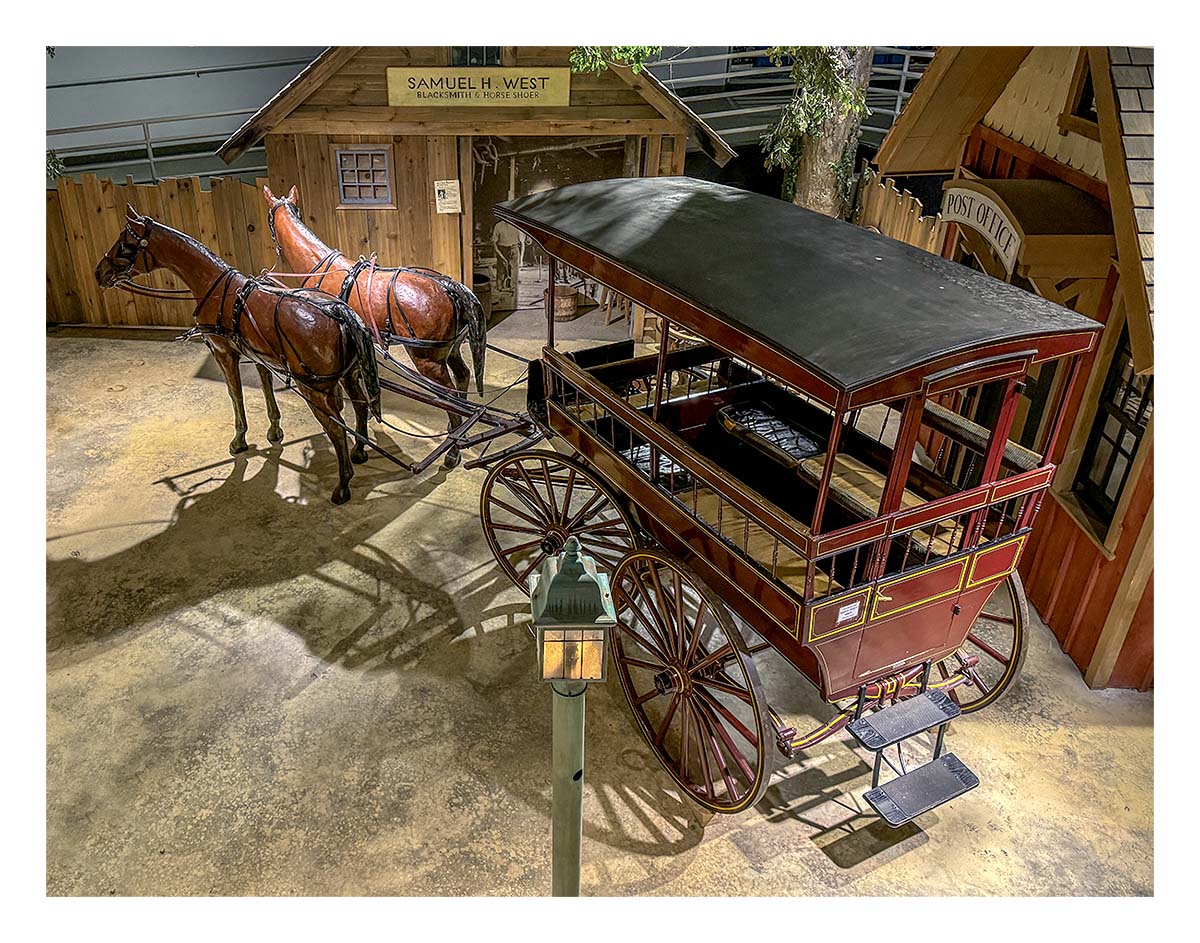
Depot Wagon.
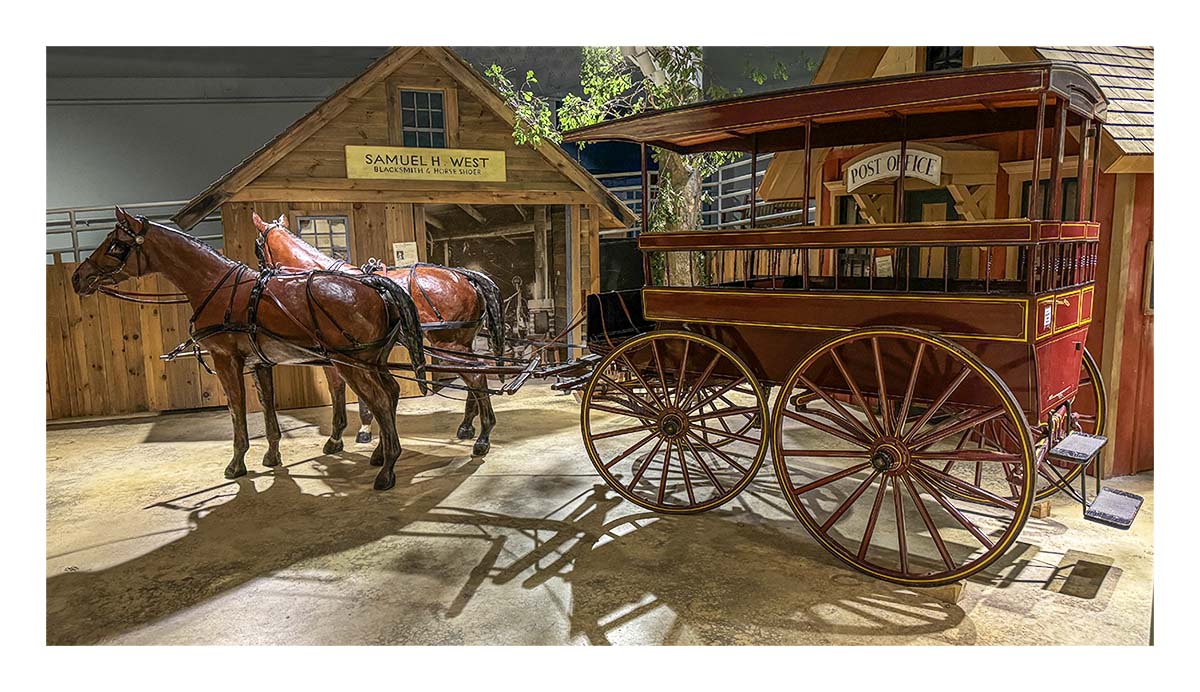
When the Long Island Railroad added a Stony Brook Depot to its Port Jefferson branch in 1879, the increase in tourist from Manhasttan, Queens, Brooklyn and even New Jersey, called for the introduction of transportation to shuttle these passengers to and from the railroad. Hence, the Depot Wagon was born.
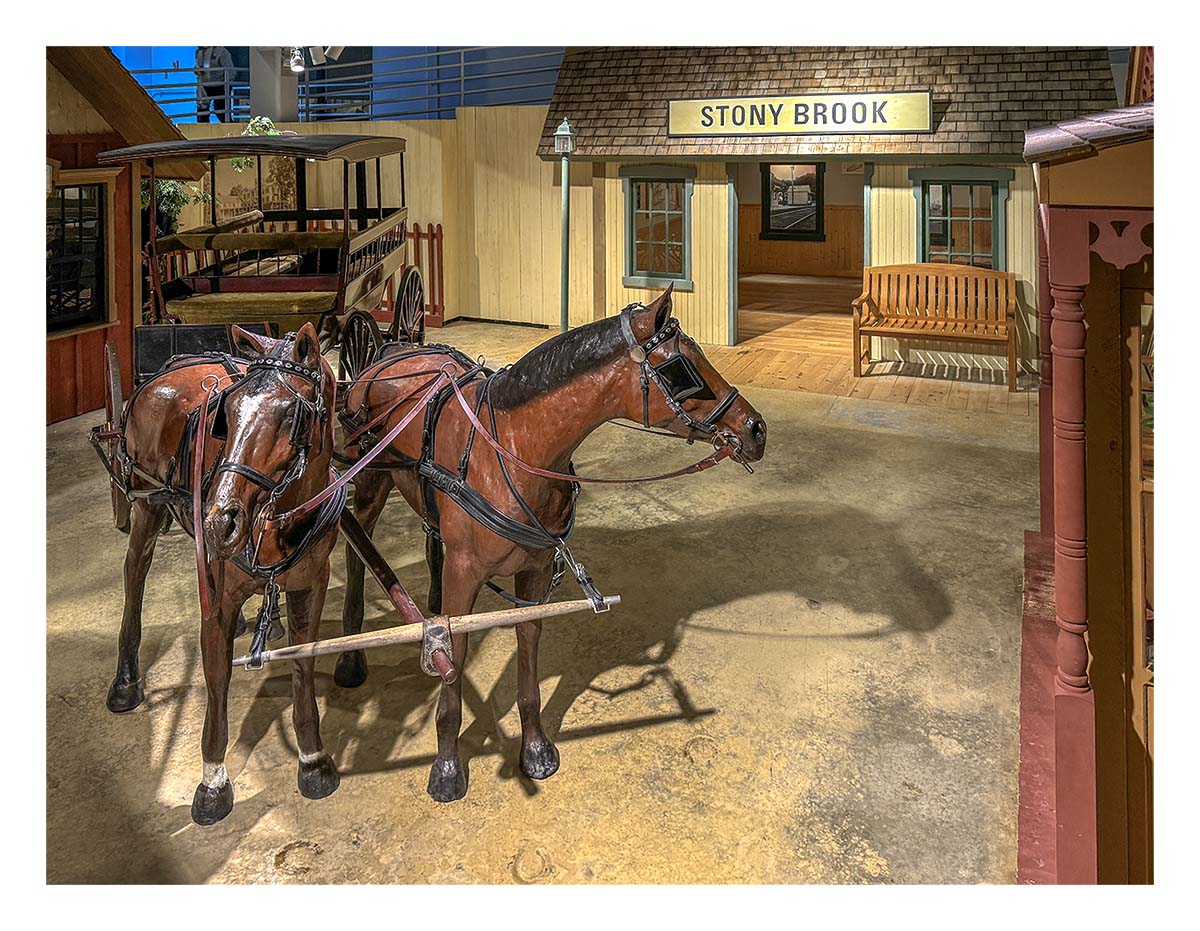
Built by George Everett Gould of Lake Groove, Long Island, a separate wagon would be used for the luggage.
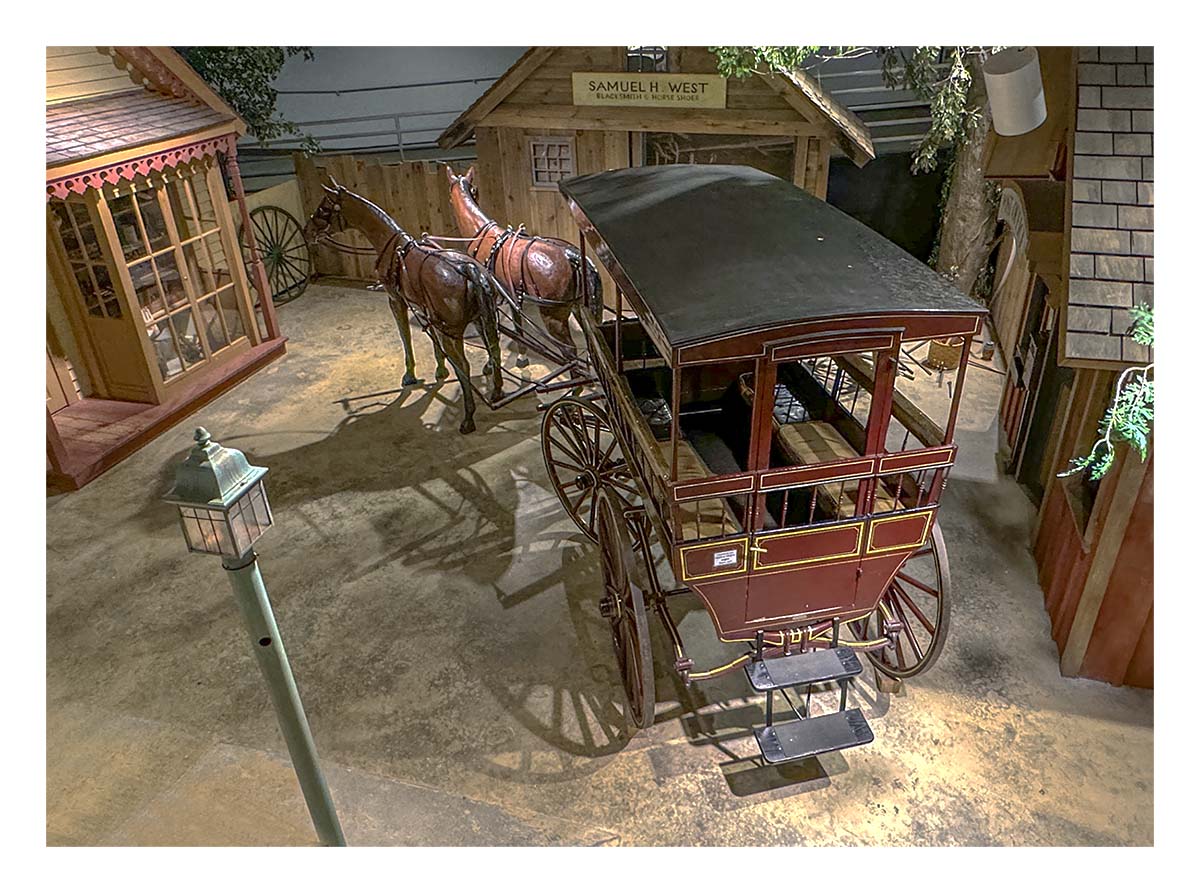
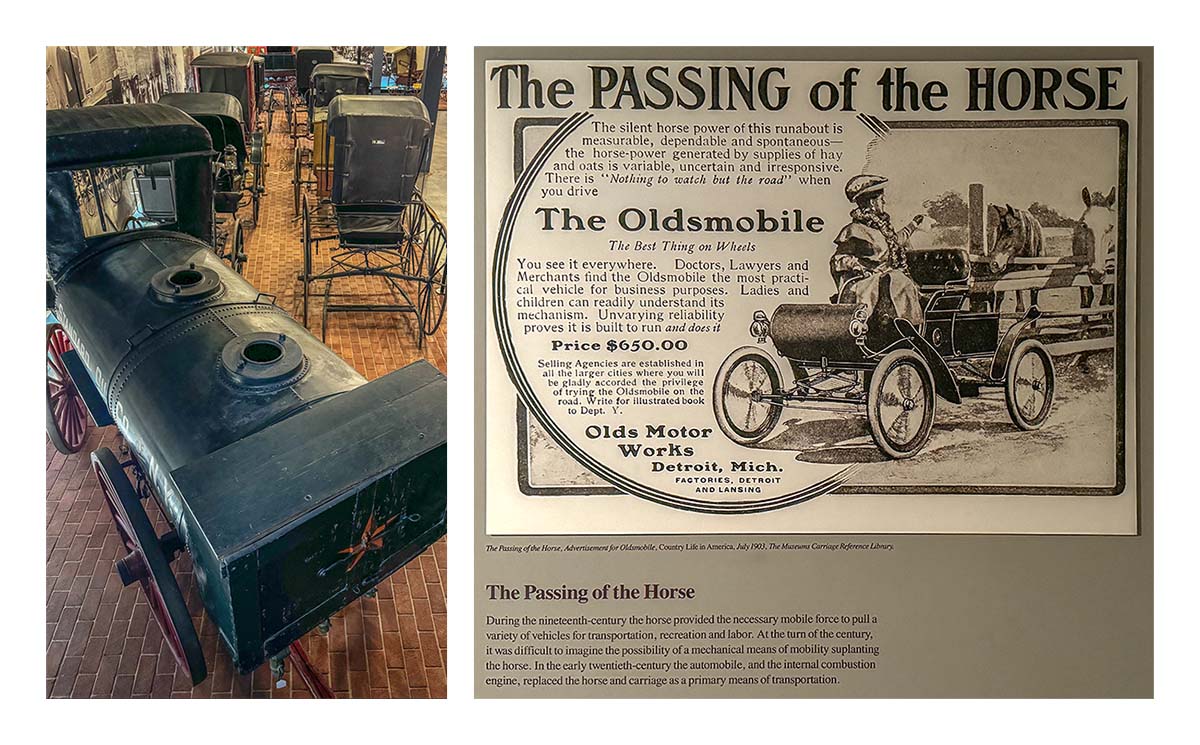
Left: This Standard Oil Wagon was used to deliver kerosene for lamps, gear oil and grease for farm equipment.
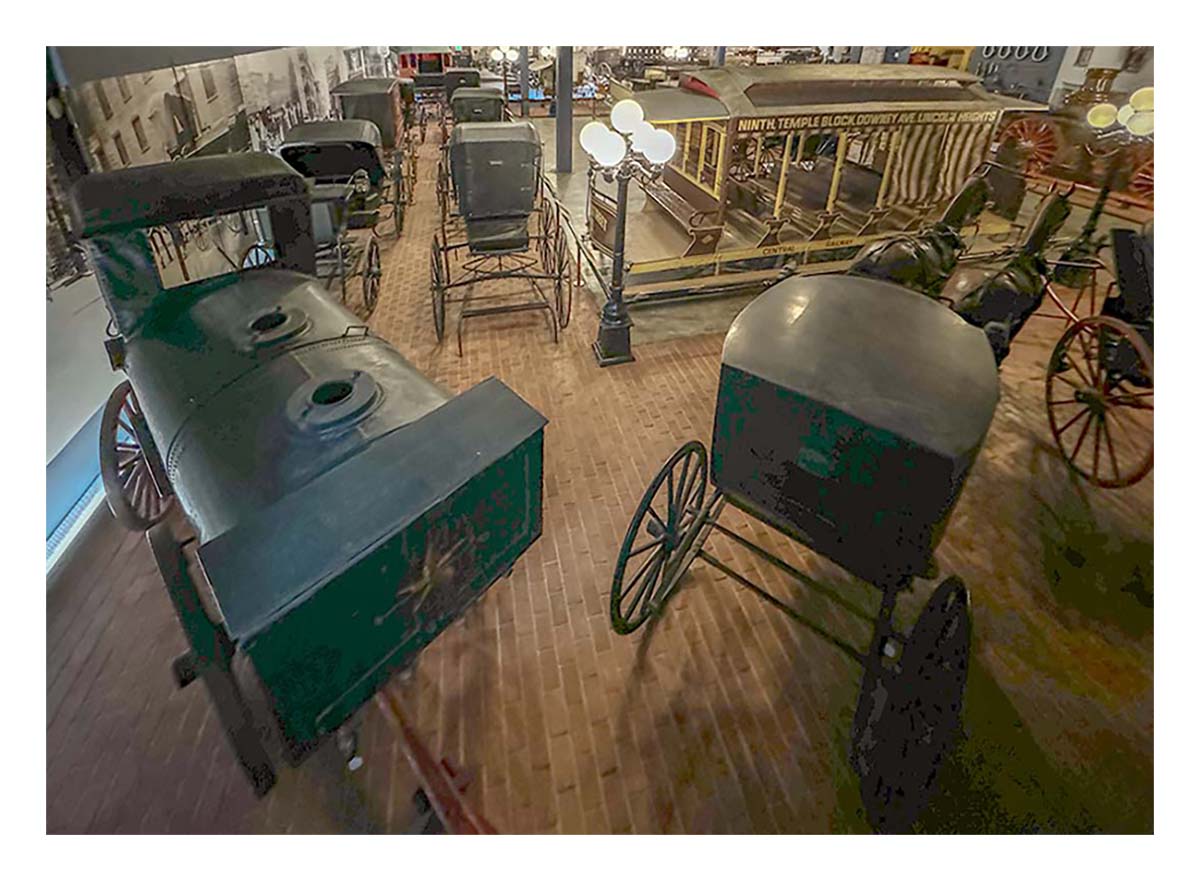
Left: Standard Oil Wagon
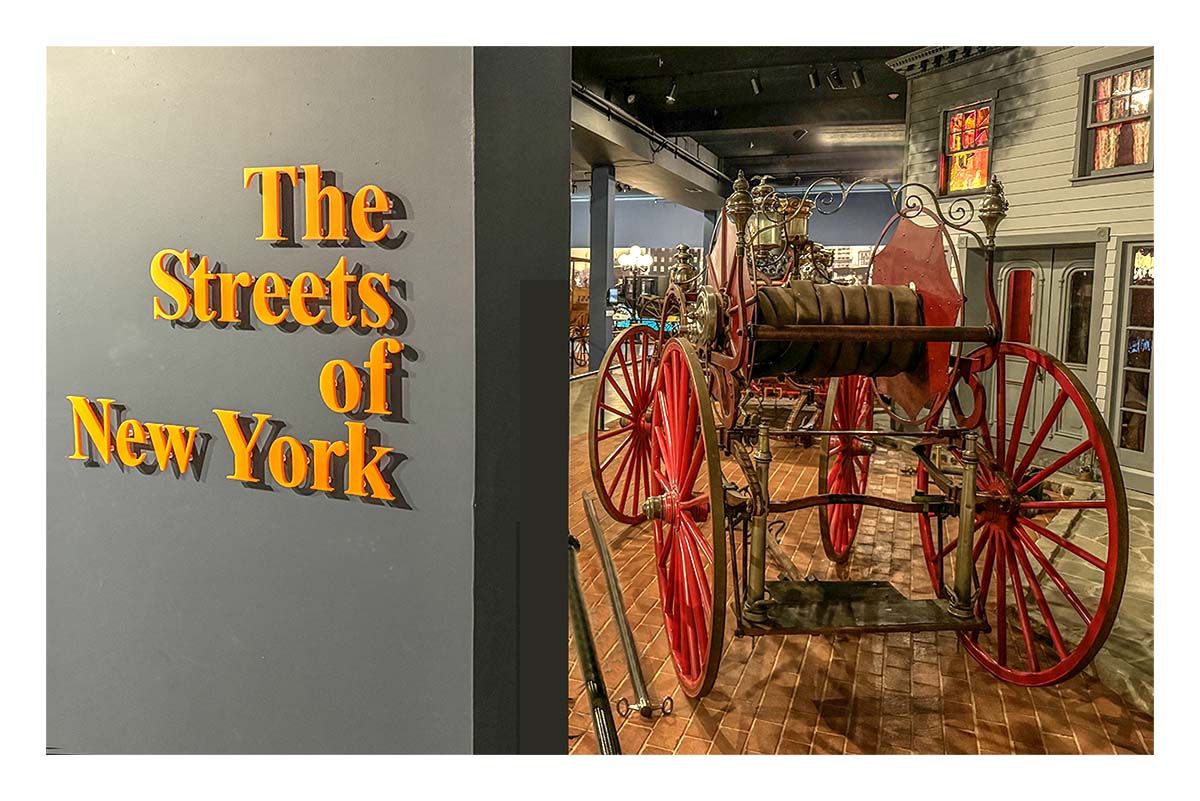
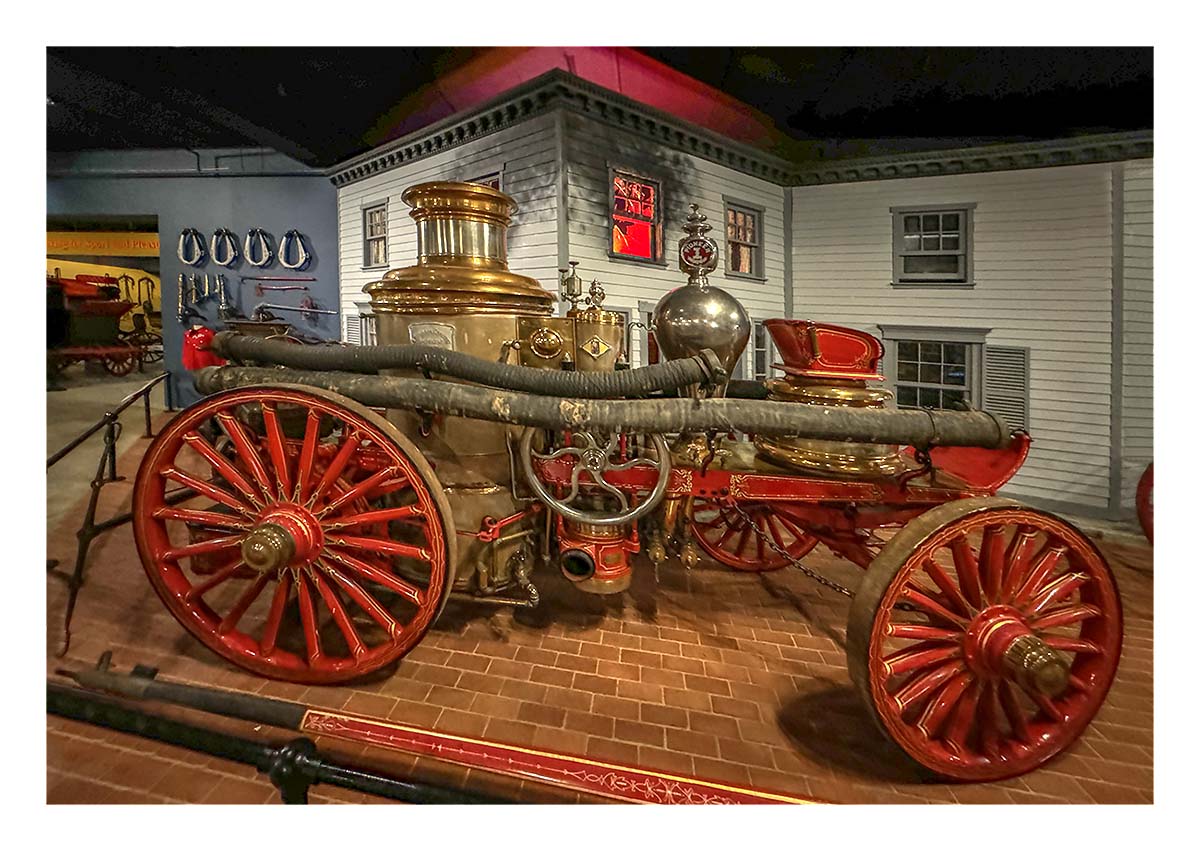
Steam Pumper (1874).
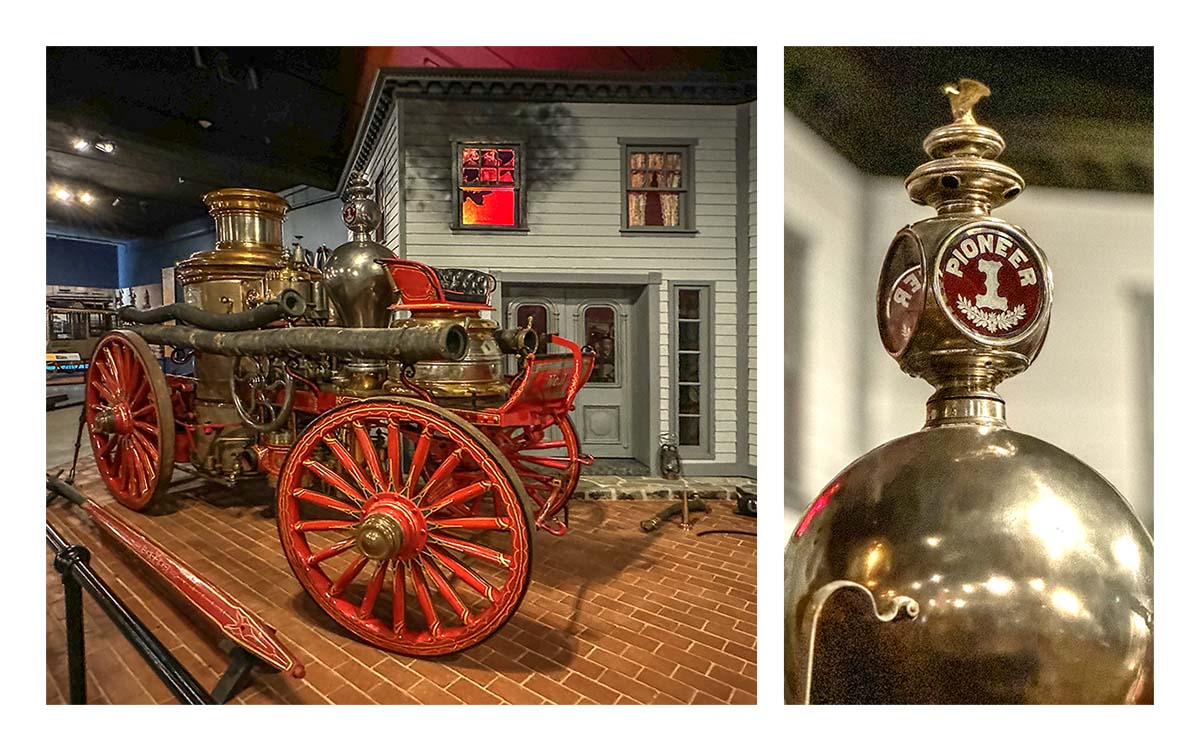
Built by the Amoskeag Manufacturing Company, Manchester, New Hampshire.
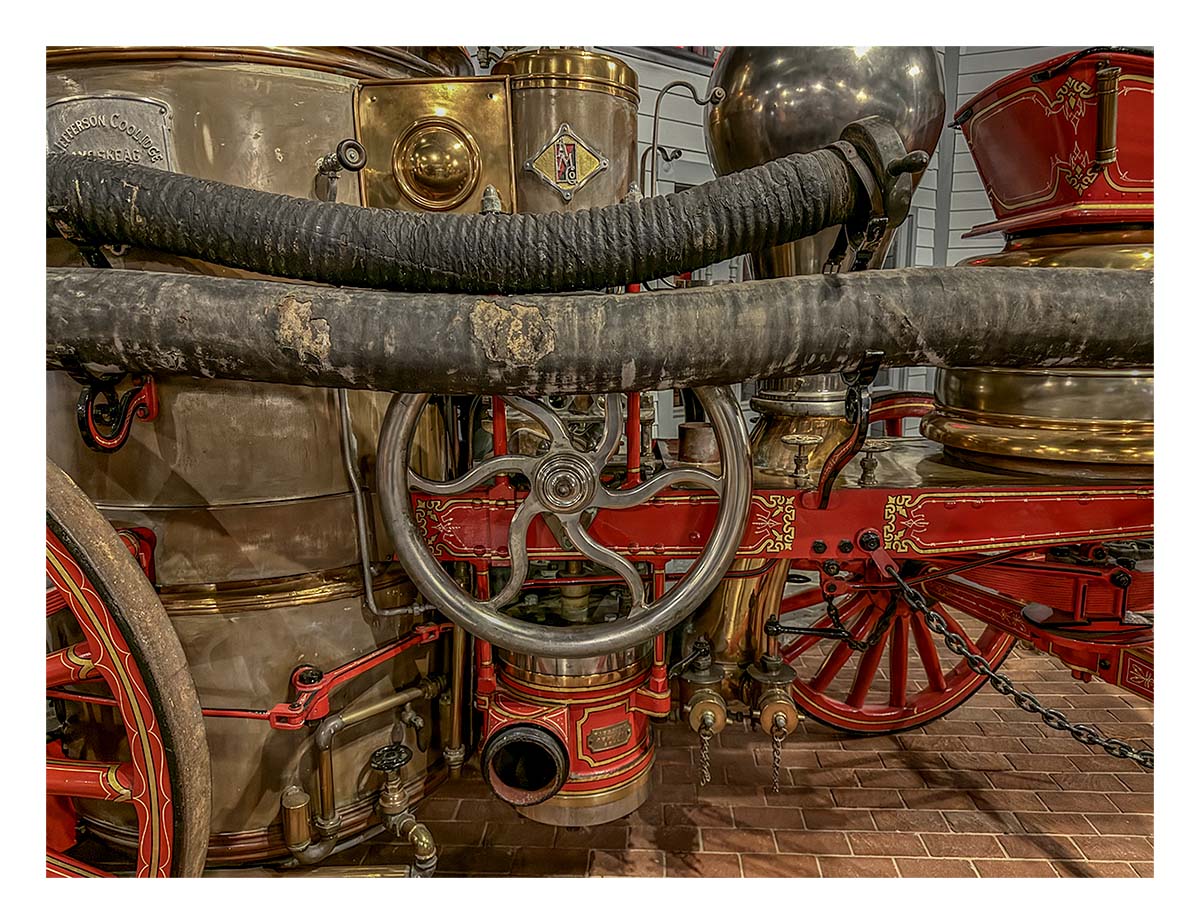
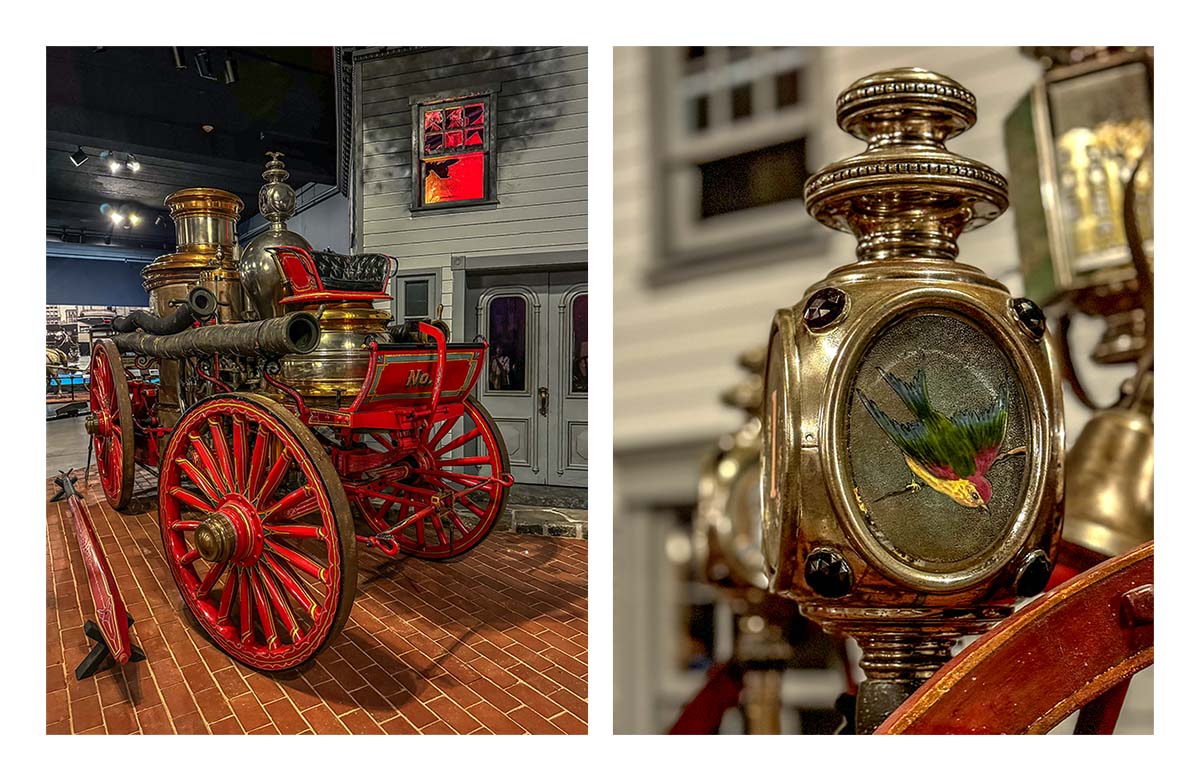
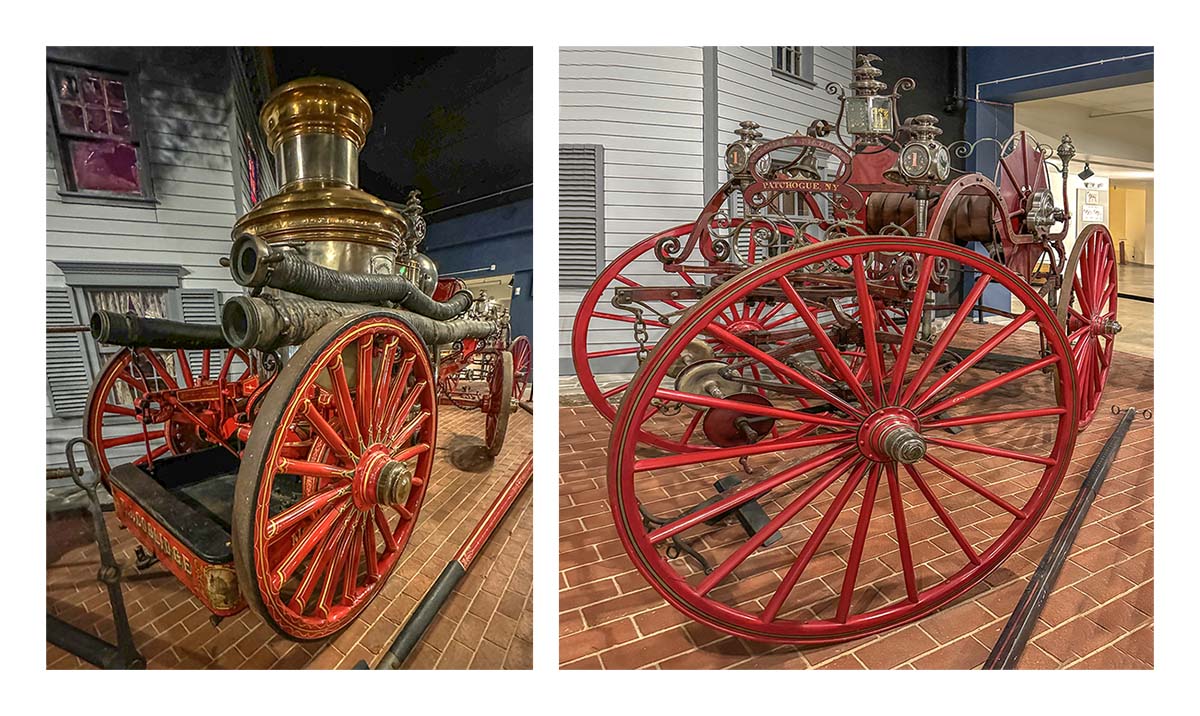
Left: Steam Pumper (1874).
Right: Hose Cart (1870).
Right: Hose Cart (1870).
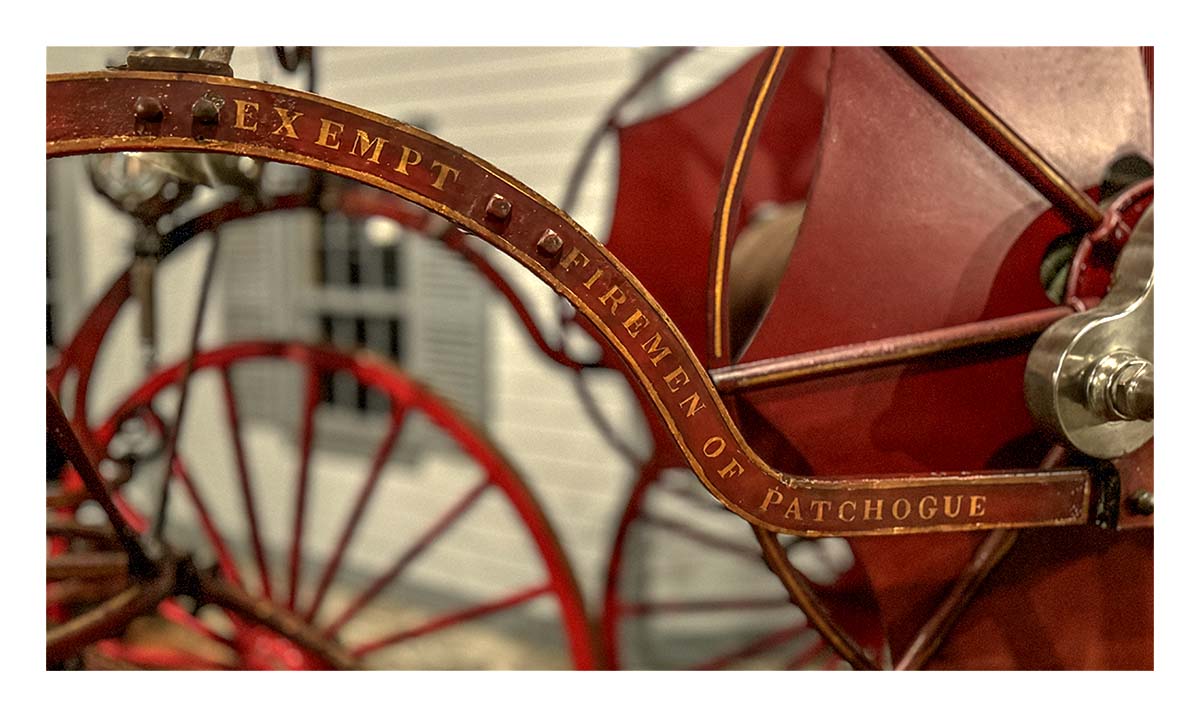
Close up of Hose Cart. Patchoque Fire Department.
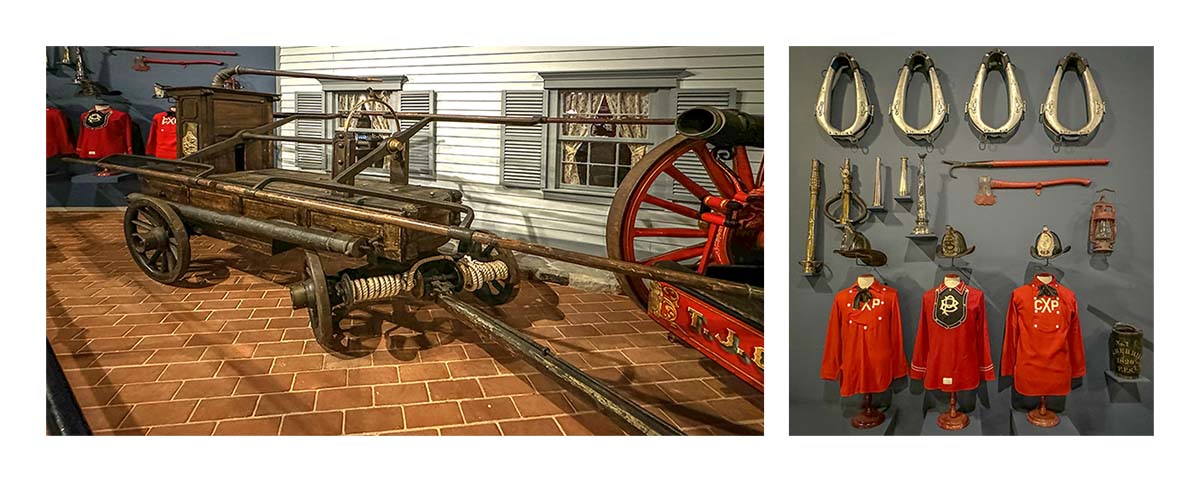
Left: Gooseneck (hand) Pumper (1807).
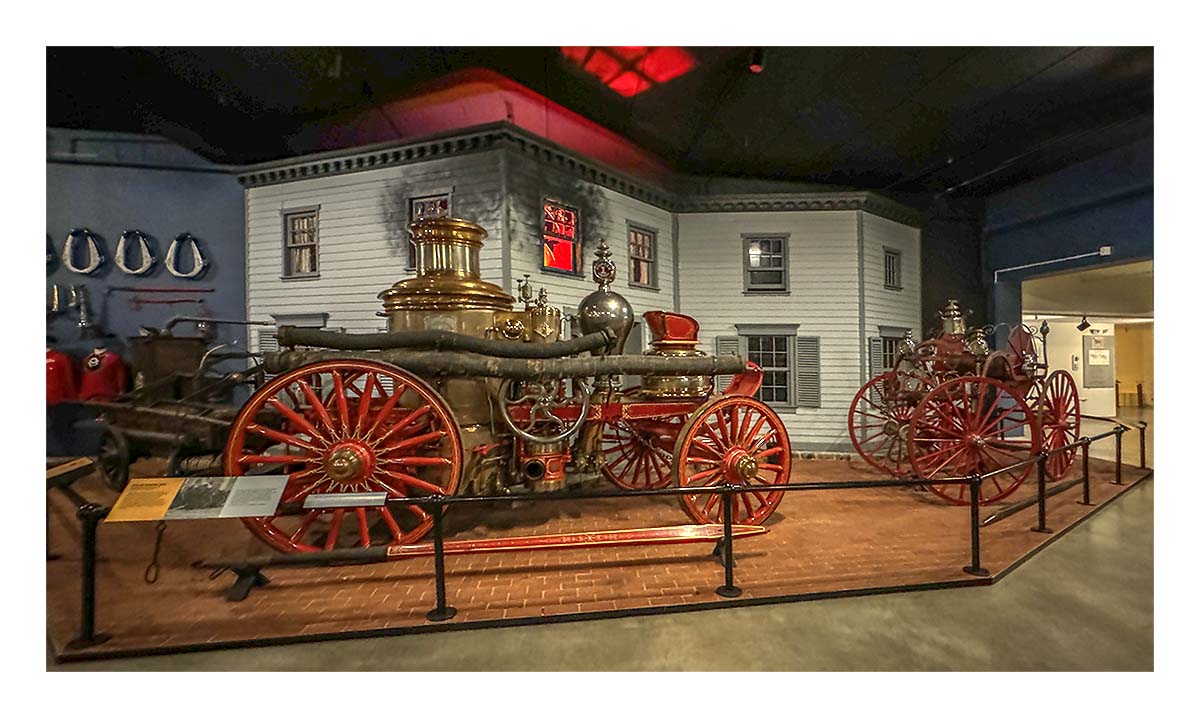
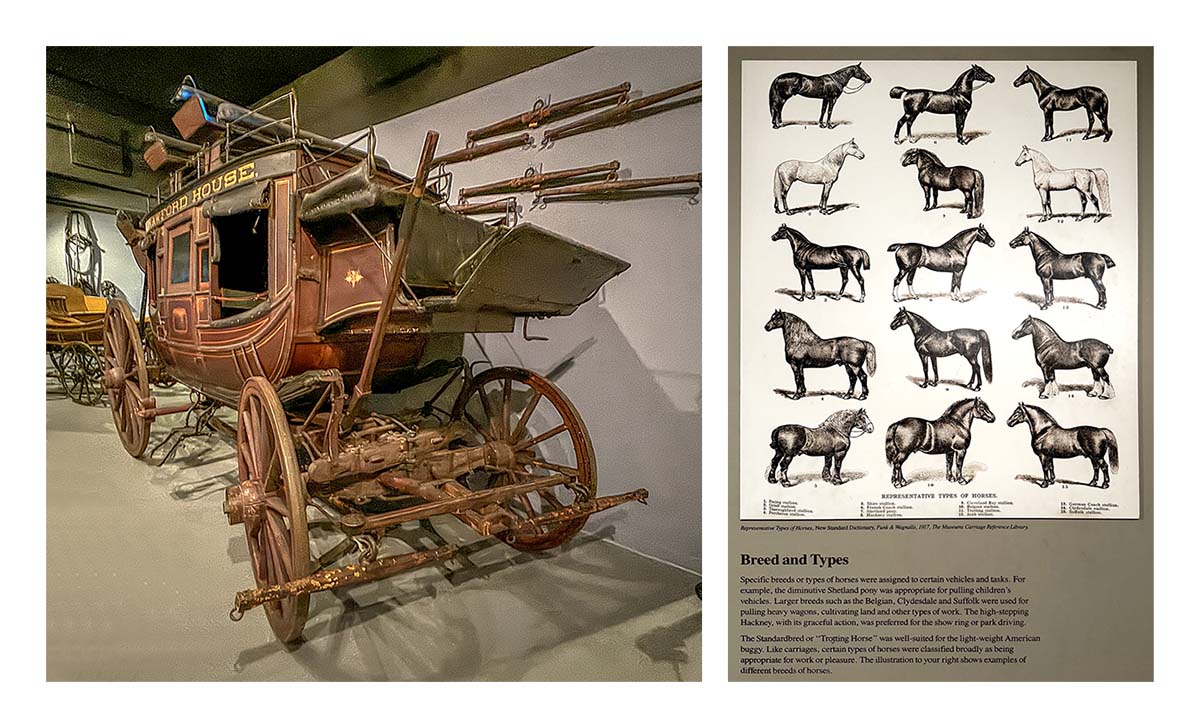
Crawford House Coach (1867).
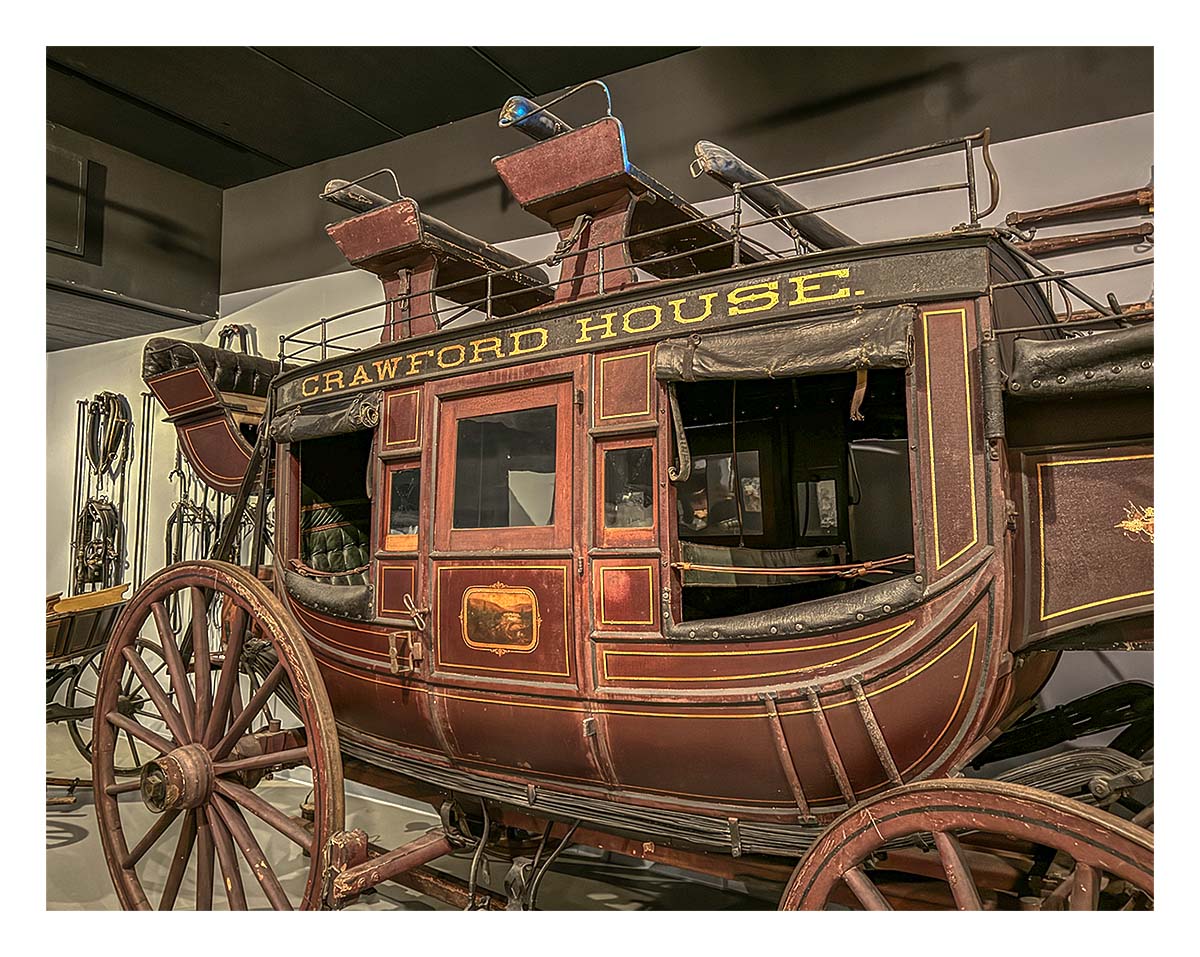
Built by the Abbot-Downing Company, Concord, New Hampshire, these coaches were often packed with 20 passengers (capacity) and their luggage riding on top.
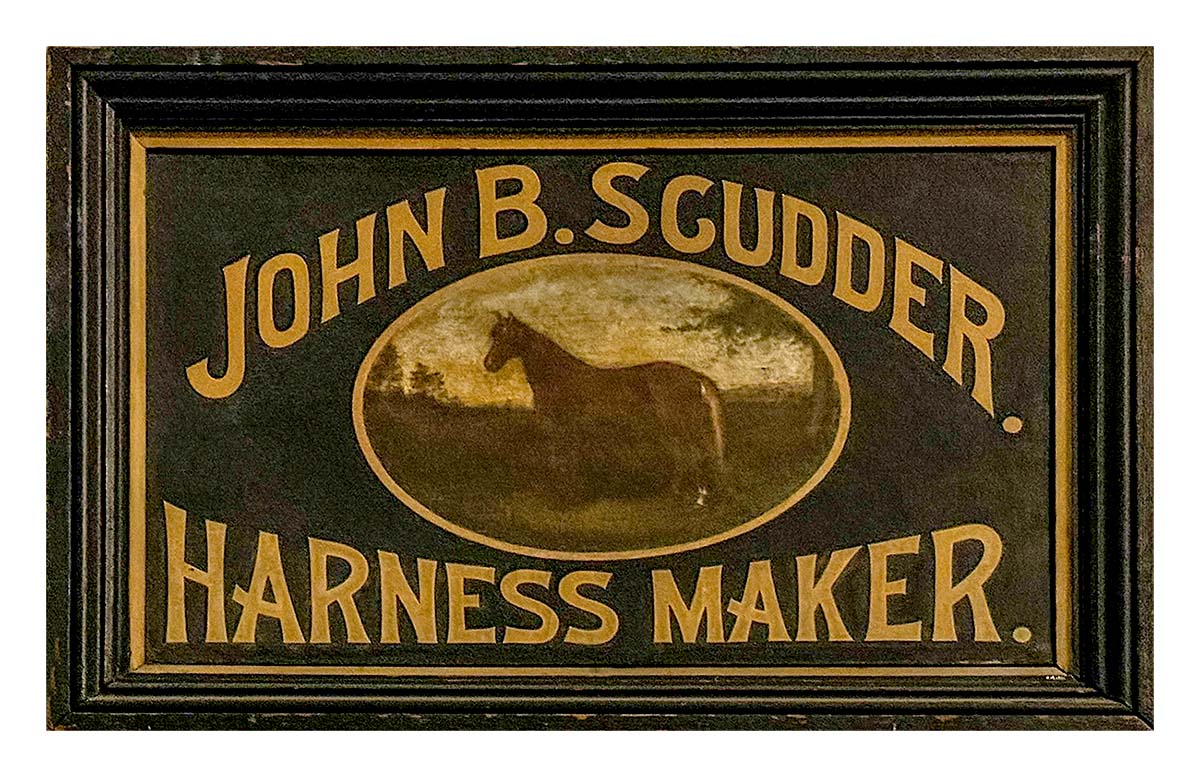
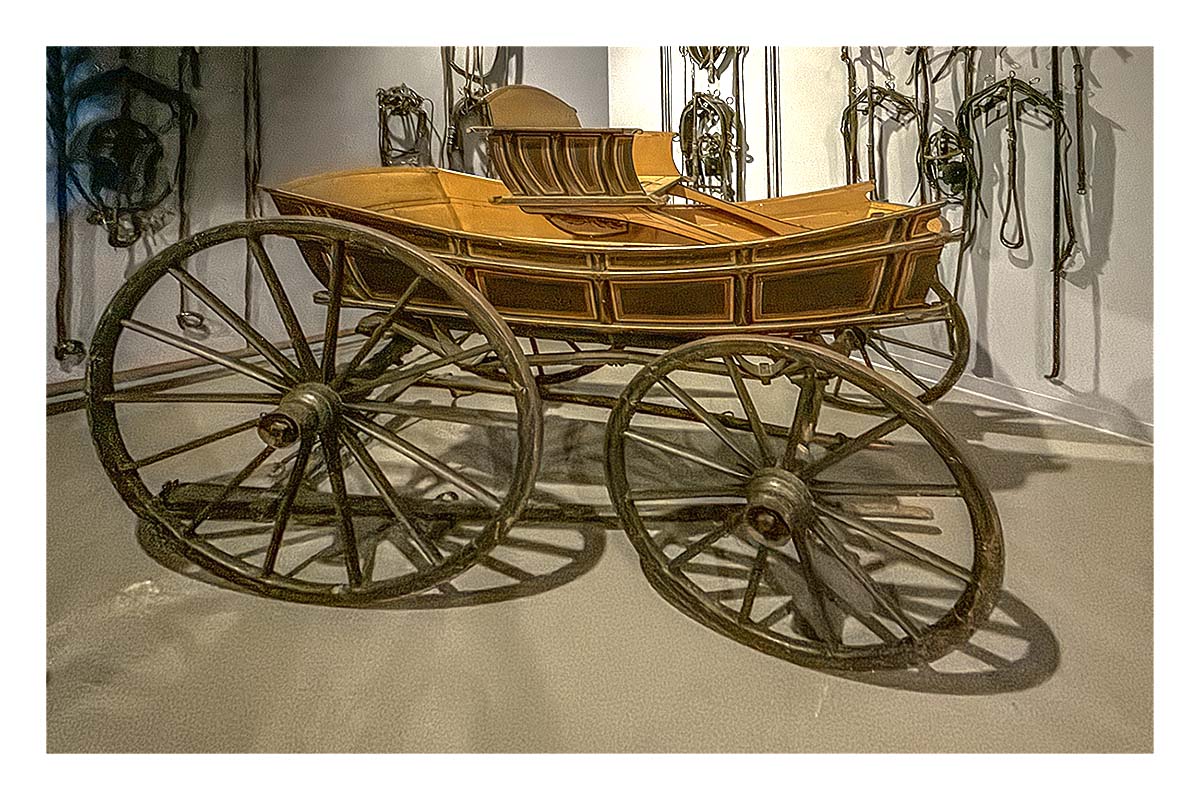
Pleasure Wagon, a down-to-earth wagon sold at a reasonable price.
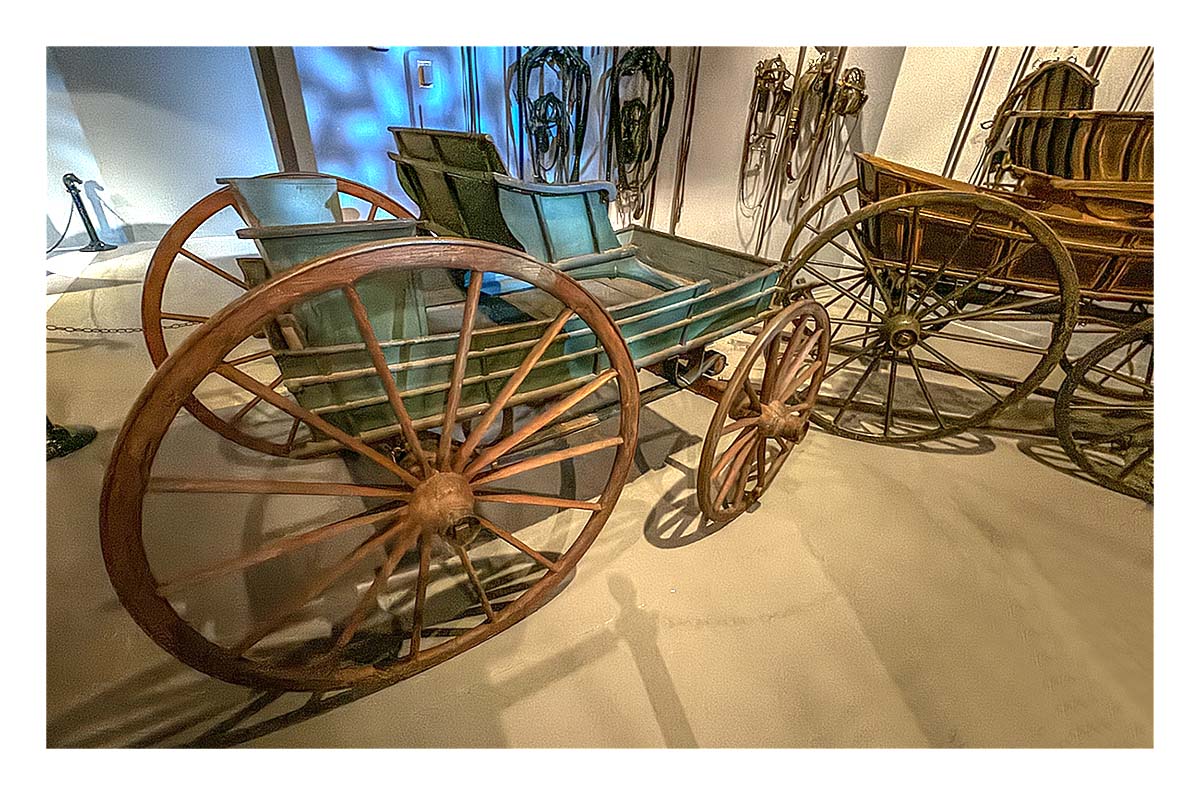
Pleasure Wagon (around 1820s) built by Lewis Downing, Concord, New Hampshire.
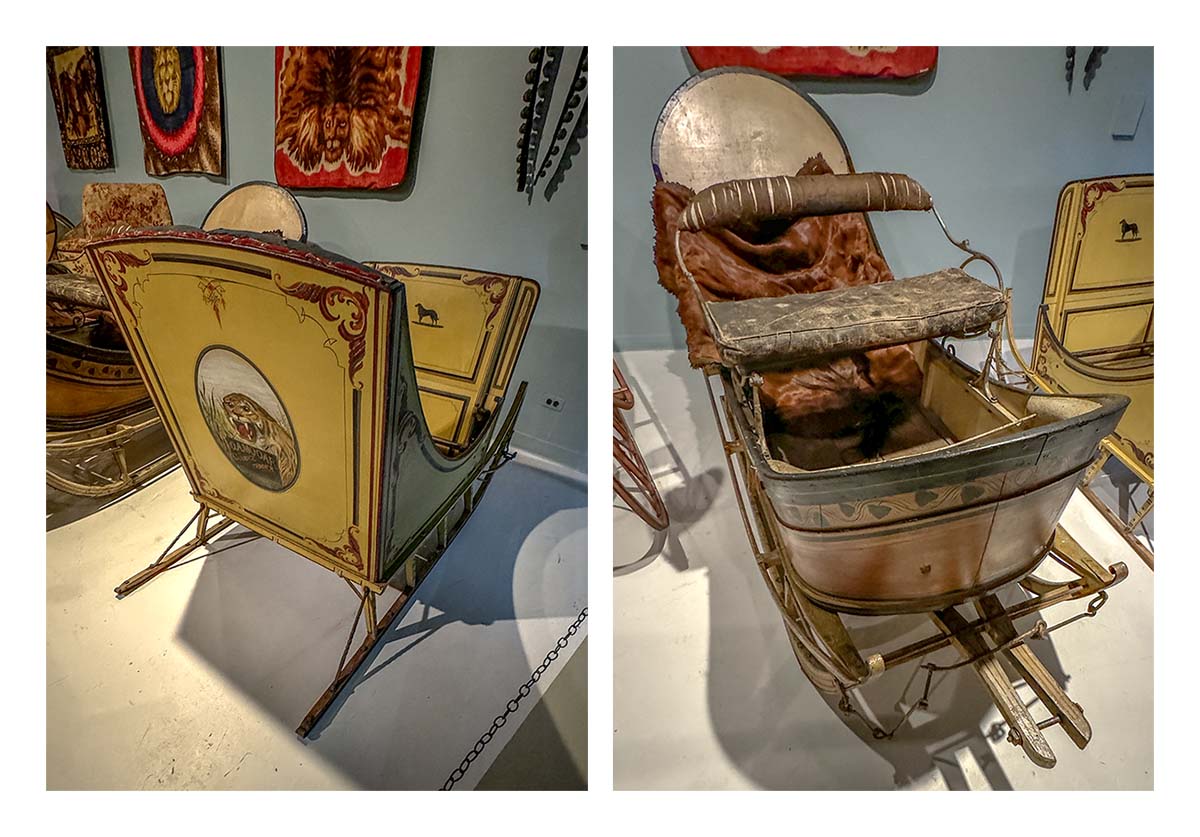
Left: Sleigh (aound 1830s).
Sleigh (around 1850s).
Sleigh (around 1850s).
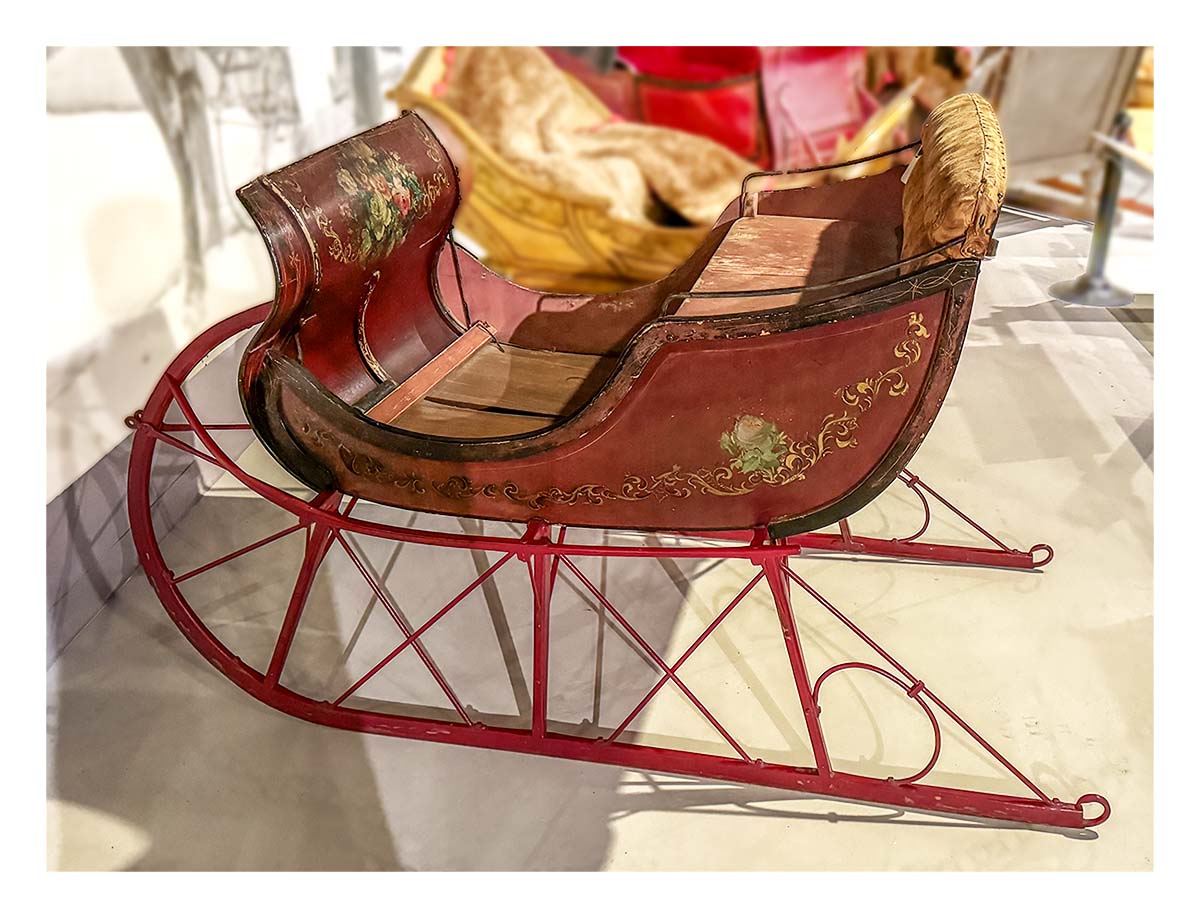
Cutter Sleigh (around 1880s).
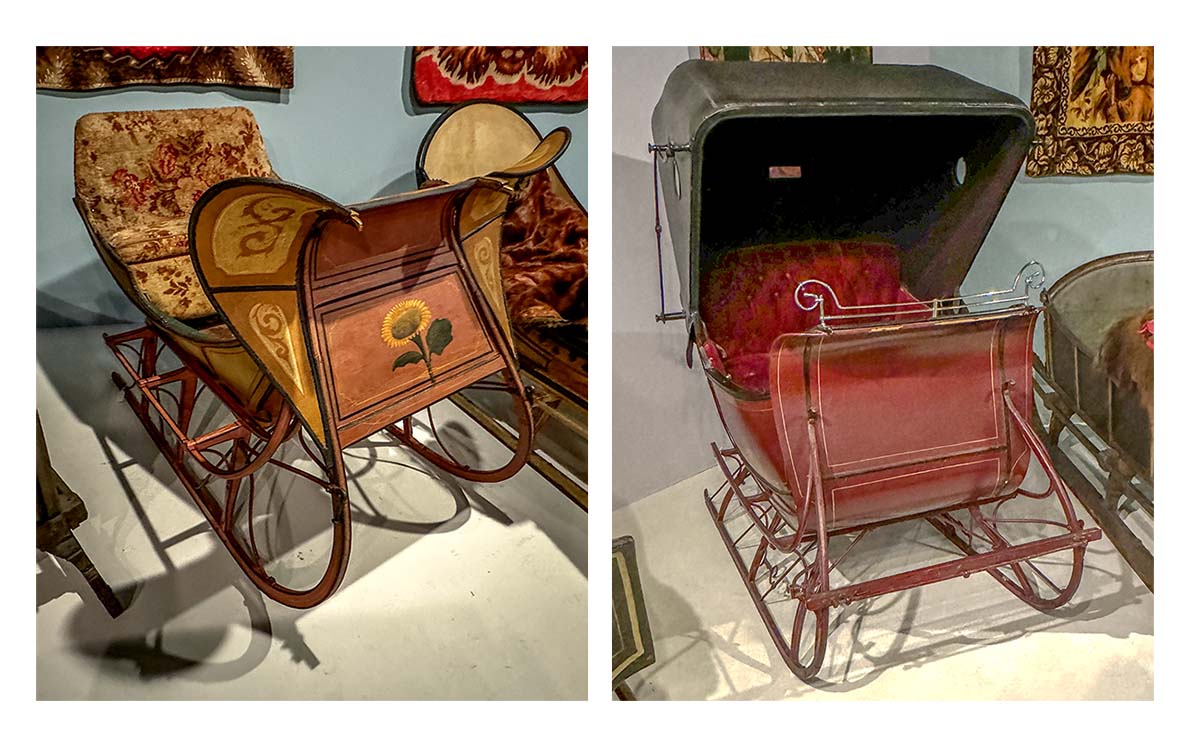
Left: Sleigh (around 1840s).
Right: Doctor's Sleigh (around 1890s), St. Johnsbury, Vermont.
Right: Doctor's Sleigh (around 1890s), St. Johnsbury, Vermont.